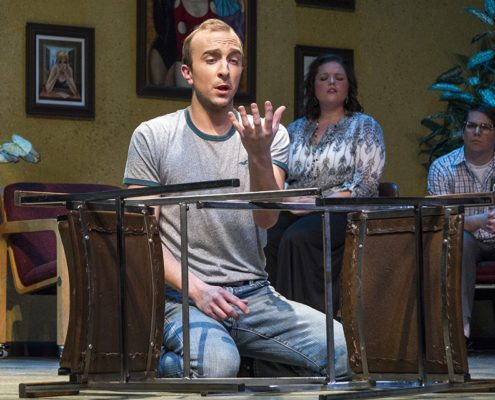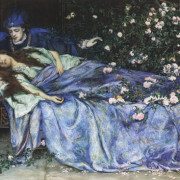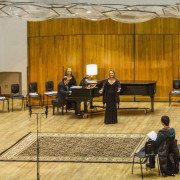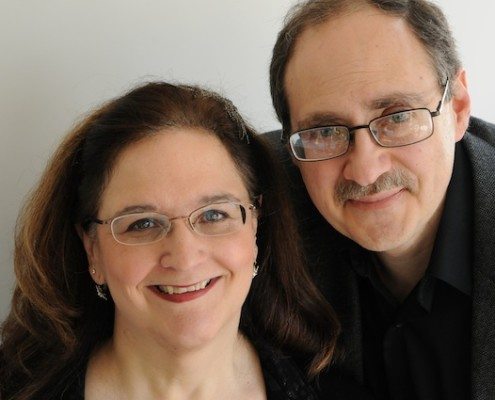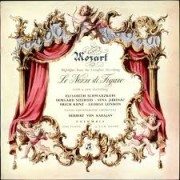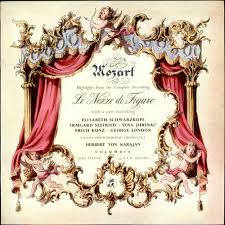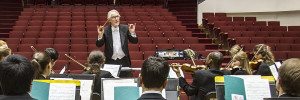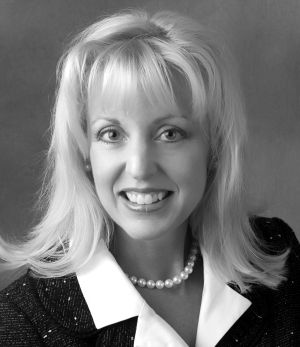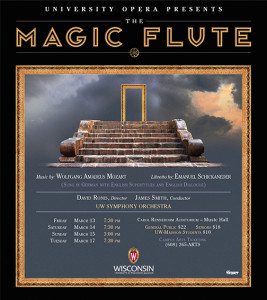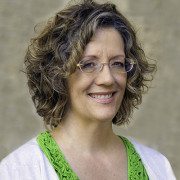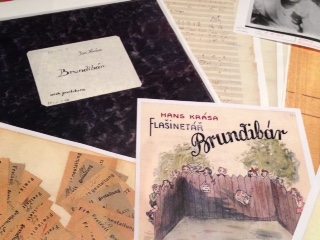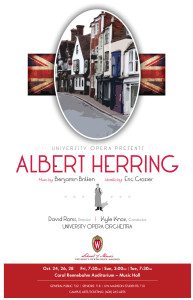by Katherine Esposito
Not everything that is faced can be changed, but nothing can be changed until it is faced. – James Baldwin
It was the path he’d chosen, the direction he’d pursued, and Kyle Knox had finally tasted triumph in 2005, when he won, at age 23, the position of assistant principal clarinet of the Milwaukee Symphony Orchestra.
It was a plum trophy in a sometimes punishing profession, realized only after a decade of studious toil in the practice room and on the orchestra stage.

Kyle Knox. Photograph by Katherine Esposito.
The young man who’d once won Most Valuable Player in Raritan, New Jersey as a 12-year-old Little Leaguer had bent his competitive edge toward music, and he’d won something akin to MVP there, too. He studied with the great clarinetists – Ricardo Morales and Yehuda Gilad – went on to Juilliard and Tanglewood, and bested hundreds of rivals for the Milwaukee job.
Then, three years later, almost imperceptibly, one neuron at a time, it all started to unravel.
Today, Knox is best known in Madison as a promising young conductor, a graduate student at UW-Madison who will conduct UW’s upcoming opera, Transformations, and recently made his Madison Opera debut in its production of Little Women. In 2014 and 2015, he conducted University Opera’s award-winning Albert Herring and two concerts with the Middleton Community Orchestra. (He is also the husband of the Madison Symphony Orchestra’s concertmaster, Naha Greenholtz.)

Kyle Knox with his wife, Naha Greenholtz, hiking in Santa Fe, 2009. Family photograph.
He has impressed many observers, including Madison Symphony Orchestra conductor John DeMain, who has watched Knox conduct several times, including Albert Herring, in which DeMain’s daughter Jennifer was cast. “[Kyle] worked uncompromisingly to achieve as close to perfection as possible,” says DeMain.
Until a few years ago, however, Kyle had never considered becoming a conductor leading an orchestra. He was exhilarated to be playing in one.
His emergence as a conductor has almost been an accident, one that may now be resolving in his favor. But he faced many bleak days before he got there.
It was almost imperceptible at first, just odd coordination problems with his right hand. It was the spring of 2009. “I remember I was playing principal on Peter and the Wolf, and there’s this one passage with fast 16th notes and C-major arpeggios, and I remember having a hard time with this particular passage, repeating 16th notes, a very specific sequence of finger motions, and thinking, ‘What the hell is going on here?’ It was very strange” Kyle says.
For that concert, he wound up transposing it into a different key, and playing on an A clarinet instead of the usual one. “I didn’t think anything of it at the time,” he continues. “I just thought, oh, for some reason, my pointer finger is a little slow.”
“But maybe a month later, I was playing E-flat clarinet on Shostakovich’s 6th Symphony, and there’s a huge E-flat solo in the beginning of the second movement, very fast, and it had a very similar sequence of fingerings in the middle of the solo, and I practiced it obsessively, and I recorded it at home, and drove my wife crazy. But no matter how much I practiced, I never felt comfortable with the fingerwork.”
Classical orchestral musicians, at the highest levels, achieve mastery through one main thing: practice. It is not enough to be talented and musical; one must constantly revisit passage after passage to precisely engrave notes in the mind. Largely due to this kind of preparation, Kyle had always been assured and confident while performing. But now he began to feel unmoored.
The symphony schedule was intense: much music, many solos, multiple performances. In concert after concert, the strange sensations recurred. At first, Kyle thought it was just a matter of working harder, to fix those notes even more firmly in his brain. “When something’s difficult, you want to feel secure on it. When I do these octaves, I know the distances, [so that] even if I miss the note, I know it was a fluke. It has to feel right in your head,” he says.
But it wasn’t feeling right anymore. He began to lose confidence in his playing. A rigorous orchestra schedule gave him little respite.
His fellow musicians and the symphony patrons did not detect anything awry. But Kyle felt it was getting worse.
After six months he consulted neurological specialists at the Cleveland Clinic and Mt. Sinai Hospital in New York City, who studied his movements as played his clarinet in their offices. They asked him questions and ruled out a few possibilities. Then they gave him a diagnosis: focal dystonia. He had never heard of it before.
His response was to practice even harder. He describes the chain of events that unfolded. “I started obsessively practicing, to make it feel right. In an effort to make it feel right, you start playing wrong, because you start compensating. You start doing strange things, which eventually start to show in your actual playing, and then you start hearing mistakes, which confirms your initial fear that there was something wrong. And then it becomes a feedback loop.”
For three years, Kyle continued to play with the MSO. He was managing, but the amount of music to learn and crush of performances — 150 per year — became overwhelming. “I just couldn’t rehab in a way that gave me confidence about playing in orchestra full time,” he says. “Wind players can’t hide. Everything you do is a solo, so you feel exposed. It was a really rough time.”
He remembers his final concert, in October 2010, Mozart’s Requiem with conductor Edo de Waart, on which he played the basset horn. “I hadn’t told anyone anything about what I was dealing with,” he says. “I remember thinking about the routines of orchestra life, how accustomed to the whole ritual I had become and reflecting on how some day soon I just wouldn’t be doing it anymore. It was heavy. After that Requiem performance I talked to the personnel manager and started my injury leave. That was it.”
Since the age 13, Kyle had known he wanted to work with music. He remembers hearing Gershwin’s “Rhapsody in Blue” on the radio, and watching a documentary about Leonard Bernstein and the music of Gustav Mahler. “I was mesmerized,” he says. “I was interested innately. I had to figure out a way to access it, and access came through the clarinet.”
Now, that access was cut short. He was adrift. He immediately dove into conducting after cobbling together a volunteer orchestra in Milwaukee, trying out conducting studies at Northwestern University, and ultimately attending graduate school at UW-Madison.
At the School of Music, he studies with orchestra conductor James Smith, an “accidental conductor” himself who also once played clarinet. “Jim is enormously accomplished,” Kyle says. “I’ve been very lucky to play some of America’s greatest orchestras in my career. I’ve played for a lot a famous conductors, and I can legitimately say that Jim is as good as anyone I’ve ever played for.”

Kyle Knox with the UW Symphony Orchestra, 2013.

Scott Gendel (MM & DMA, School of Music) and Kyle Knox, preparing Little Women. Gendel is coach & accompanist for the show. Photograph by Steffanie Berg.
Madison got to know Kyle three years later, after several notable turns as a promising young conductor. Early on, he caught the eye of John DeMain, who knew about Kyle’s focal dystonia, and who saw real promise, and wanted to give him a chance.
Telling Kyle’s story on paper makes it all sound so simple. One career ended, another one started. He did it the only way he knows, urgently, intently, almost desperately, uncomfortable with any lack of movement in his life. The truth, however, is that he really had very little control over what was happening. And that was the main thing he needed to accept.
“Being a clarinetist was a thing that defined me,” he says. “It was part of my sense of self, and you can’t underestimate that.” He knows better now. “The things that made me able to accomplish anything on the clarinet are intrinsic qualities. The clarinet doesn’t define me. I define myself.”
If he had to enter that valley once more, he’d hope to approach it differently. He’d take time to grieve, to try to discern underlying meaning, to try to figure out the nature of the problem. Rushing doesn’t help anyway, he says.
“Sometimes, in a effort to redefine yourself too quickly, you can slow your process down of ending up where you’re going to end up anyway,” he continues. “Maybe you’ve been pushing too hard, maybe you’re been working too hard. Your body is telling you things, and you need to use it as an opportunity to reflect.”
“You have to be sympathetic with yourself. I think that is hugely important. And to have as much an eye on the long term as possible-that life is long, that your career is long, that there are lots of things in the future that will happen that are potentially good. But you have to let them unfold.”
Ten years ago, he wouldn’t have listened to these words. It wasn’t who he was. But it is who he is now.
“It’s possible to have great aspirations, but also to be patient and to be sane. It is possible to be of both minds. And I think the most successful people are that way.”
Spring Performances with Kyle Knox, Conductor
University Opera, Transformations
March 11, 13, 15, 2016
https://www.music.wisc.edu/opera/
Madison Savoyards, The Gondoliers
July & August, 2016
http://madisonsavoyards.org/
Middleton Players Theater, Sunday in the Park with George
June & July, 2016
http://www.middletonplayers.com/
Summer Music Clinic Honors Orchestra
June 26-July 1, 2016
http://continuingstudies.wisc.edu/smc/index.html
Katherine Esposito is the publicist and concert manager for the UW-Madison School of Music.
About Focal Dystonia
Kyle Knox is only one of many musicians who was diagnosed with focal dystonia, many of them very famous. Glenn Gould, the pianist, and Robert Schumann, the 19th century composer, both are now believed to have suffered from it. Pianist Leon Fleischer used only his left hand for several decades while searching for a solution. A New York Times story in 2012 sheds light on this little-understood and seldom discussed condition. Another Times story recounts the story of pianist Fleischer.
Here’s how Kyle Knox describes it:
“Focal dystonia is far too complicated for me to paraphrase easily. That said, I’ll try: Basically it is a neurological condition where the brain’s ability to rewire itself, called plasticity (normally a good thing as it enables the acquisition of new skills and information), becomes overactive. In the case of musicians, it becomes overactive in a very specific way that involves otherwise familiar gestures that have been long perfected through years of practice. To put it simply, music that was once effortless suddenly starts to ‘feel’ wrong. It doesn’t sound wrong to outside listeners, but the neurological experience of playing, for example, a certain finger combination, becomes distorted in the player’s mind. As my neurologist told me, ‘all initial symptoms of musician’s focal dystonia are imperceptible to the outside observer.'”
A link from the Dystonia Medical Research Foundation provides more information.


